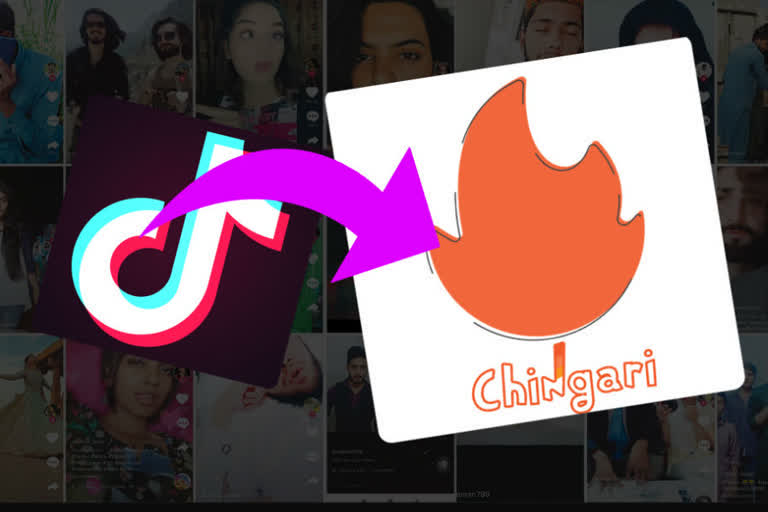Hyderabad: Earlier this week, taking note of the wave of anti-China sentiment sweeping across the country, the Indian government banned 59 Chinese apps in an unexpected move, sending Indian tech companies and start-ups into a tizzy, but for a good reason.
The ban on immensely popular social apps like TikTok, WeChat, Helo, among others, meant that consumer attention could now dramatically shift towards local Indian apps playing in the same arena that till now were the ‘non-preferred’ substitute. And that’s exactly what happened.
As Internet service providers blocked video-sharing platform TikTok, which has a user base of an estimated 120 million in India, similar homegrown apps like Chingari and Mitron started reporting massive increase in downloads just few hours later.
Sumit Ghosh, co-founder and chief product officer, Chingari app, wrote on Twitter on 29 June (the same day the ban on Chinese apps was imposed): “100,000 downloads per hour, guys please be patient! we are working on the servers and getting things up and running asap!”
In an official statement, Chingari’s co-founder and CEO Biswatma Nayak later said: “Since the word spread that Indians now have a homegrown and more entertaining alternative to TikTok, we have been recording traffic beyond expectations on our app.”
Highlighting the financial repercussions of the development, Nayak added: “As Chingari is setting new benchmarks, a lot of investors are showing interest in our app. We are holding crucial discussions to get a good investor(s) on board so as to scale up our free-of-cost social platform.”
Another Made-in-India video app Mitron, which had already gained traction in India after the Coronavirus-triggered lockdown began in the country, has now seen over 10 million downloads on Google Play Store within two months of its launch in May, and a rating of 4.5 out of 5.
